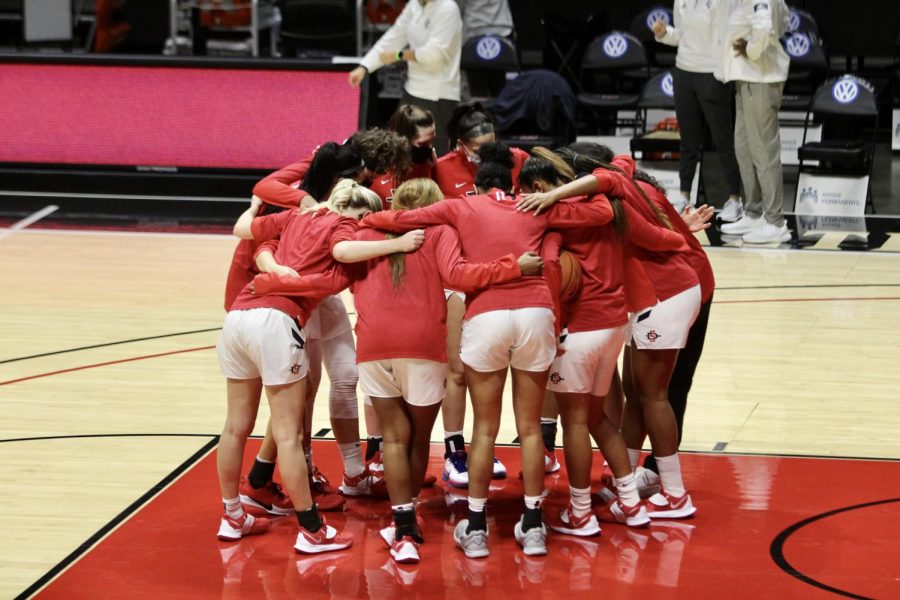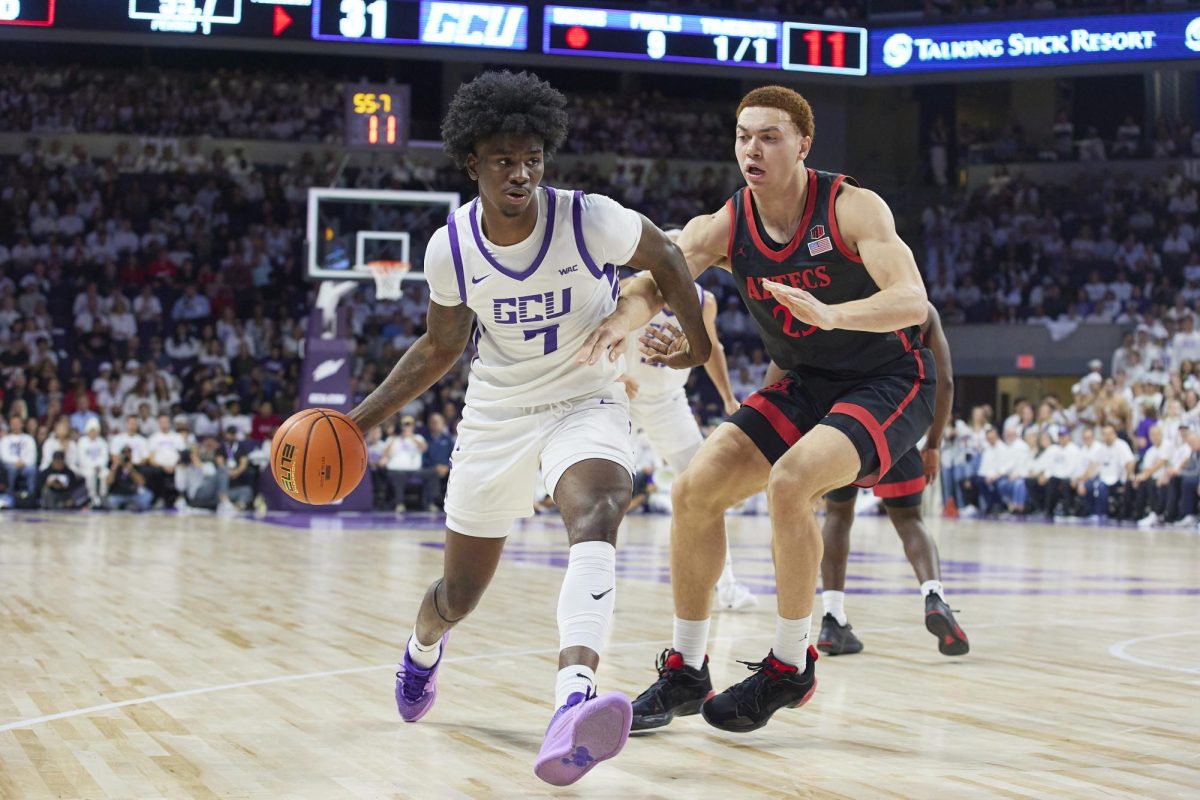March is Women’s History Month and the topic of a lack of women in sports has risen dramatically since the U.S. Women’s National Soccer Team won the FIFA Women’s World Cup in the summer of 2019.
Since then, different levels of sports organizations have added women into roles both on and off the field.
Over the last few years, Katie Sowers and Alyssa Nakken have coached Bay Area teams in the San Francisco 49ers and Giants as well as Becky Hammon for the San Antonio Spurs.
In addition, Kim Ng became the first woman general manager in MLB for the Miami Marlins last November while Bianca Smith became the first African-American female to become a coach in the Boston Red Sox organization a couple months ago.
Furthermore, Colorado Rockies’ play-by-play announcer Jenny Cavnar became the first woman to call games for the first time in 22 years in 2018.
An increase in women has even happened in our sports section.
I talked to four of our six female sports writers and asked them to share their experiences and thoughts about women in sports.
Breven Honda: What does it mean when you see women take on jobs that are predominantly taken by men?
Amber Salas, Senior Staff Writer: “It’s powerful, I think about going back to growing up as a sports fan. I remember my family has always been crazy, big hockey fans, so that’s how I fell in love with sports. I remember always watching games on TV and it was males who took on all the roles, even the roles of a sideline reporter after a game. In fact sometimes, they didn’t even have them, it was just the play-by-play guys putting on a headset and asking the players or coach asking questions after the game. As I got older watching the NFL, women started taking over these roles and that’s when I really was like, ‘Oh my gosh, I would love to do something like that. I would love to be a sideline reporter and get to tell these players’ stories and ask them questions.’ That’s when it became a reality to me.”
Reese Savoie, Senior Staff Writer: “It means everything. As a woman who wants to work in the sports industry, being able to see these women be trailblazers in a very traditionally male-dominated career field is amazing. One of the biggest problems that women who want to work in sports face is a lack of mentorship. You don’t see it too often, so being able to see women thrive in this field, it’s incredible and it is so inspirational for me. I love seeing them succeed and I want to follow them in their footsteps and create my own legacy and be a trailblazer and gamechanger myself.”
Megan Oytas, Staff Writer: “I think it’s so amazing because I grew up watching sports with my mom and it was a lot of male-dominated stuff. So seeing women in these roles has a lot of responsibility, it is really awesome to see because I know a lot of female athletes from high school and they’re all amazing and I know they can take on those leadership roles. So to see women do it in a more professional atmosphere means so much.”
Jenna Meyer, Staff Writer: “As someone who is working toward that similar goal, or wanting to work in sports, I think it is so exciting, not only to see those women doing those things that I want to do in the future, but also breaking the glass ceiling and really showing that they deserve a spot at the table. Women have so much to say and so much insight and talent that goes into the sports industry and the sports world, which is really exciting. Especially in 2020 and 2021, we’ve seen a lot of breakthroughs, a lot of women in higher positions and higher roles that they deserved and have earned. So, it’s inspiring and really exciting to see women in high school and college are working toward these same goals.”
BH: Who is a woman in the sports world that inspires you?
AS: “There are just so many, but I think someone recently who has really inspired me is Molly McGrath, who is a college football reporter for ESPN. She actually just had a baby and it was really inspiring because she worked the entire college football season while being pregnant and wasn’t afraid to show it. The Athletic did a cool feature on her and what it was like going through that because most women kind of hide that when they’re pregnant and don’t want it to be shown on TV. She really embraced it just to show women that you can do both. I can be a mom and I can go back to my job at ESPN being a football reporter. She would post about it on social media and one time she got a really nasty comment about why you are doing this. She threw it right back and was like, ‘women are powerful and can do both.’ I think that was so inspiring.”
RS: “Off the top of my head, Alex Curry, who is a sideline reporter for the (Los Angeles) Angels. I love her and had the opportunity to speak with her last year. We really connected so it’s really cool saying her because I have that personal connection with her. Watching someone that went to San Diego State just like me, is a (School of Journalism and Media Studies) Media Studies major just like me, played soccer, did all these things. We had a very similar path and an early start, so it’s really amazing watching her succeed. She is a huge inspiration.”
MO: “Growing up, I watch a lot of the women soccer stars, like Abby Wambach and Megan Rapinoe, but all of those U.S. women’s soccer stars.”
JM: “I grew up in Seattle, Washington so I grew up watching the Seahawks and the Mariners and my sports inspiration has to be Jen Mueller. She is a broadcast journalist and covers the Mariners and Seahawks. She had an amazing story where in college, she would referee intramural football and people were like, ‘Oh, there’s a woman out here.’ From the beginning, she knew what she wanted and she was able to go get that done and she’s had a very successful career working for Root Sports in Washington. She is a huge inspiration for me, someone I want to follow in her footsteps, being able to cover MLB and NFL.”
BH: What does it mean that women in sports affect people and organizations not just on the field, but also off the field?
AS: “I think women in sports show how powerful women can be. You talk about Serena (Williams, on the podcast episode) and all that she went through being an athlete at that high level and going through the normal things that any other ordinary woman would go through as well. I think it’s power because women in the sports media world, women who play sports, they have this powerful platform where people are looking at them and they have the ability to tell their story, show their strength and then it inspires all the other women around who are watching them on this platform. I think it is so awesome how women have stepped up and really used that platform to reach out to the entire nation.”
RS: “It’s awesome. They’re such badasses — pardon my French. Not a lot of things render me speechless but that’s one of them being able to watch them become superstars both on and off the field. It’s so cool and when you want to work in a certain industry and there are challenges you are going to have to overcome, but if we’re talking sports, as a woman, there are obstacles that I, myself and every other woman are have to face along the way and so being able to see these women overcome every single obstacle that’s presented to them and do it with so much grace and eloquence and really come out swinging. It means everything and it’s incredible.”
MO: “I think that it is really important because especially for sports, for a very male-dominated profession, they’re having a woman being able to affect people both on and off the field. It brings in that new perspective and a lot of these women are very resilient to be in those places. I think it brings a new perspective to these athletes both on and off the field.
JM: “Honestly, it’s really positive and uplifting. There have been a lot of situations recently where we have seen disparity, especially for our women in sports and women athletes, for example at the NCAA Tournament. There was a lot of press about the disparity between the tournaments, whether it be between the weight room, the gift bags, or even the food. Seeing that, really fueled me to take a stand and show that women do deserve a place in sports and women can advocate for capabilities and talents. Whether they are athletes or women in the industry, whether it is in broadcast, public relations, finances or the operations side of things, I think women have so much to say and can really contribute positively to the organization.”










